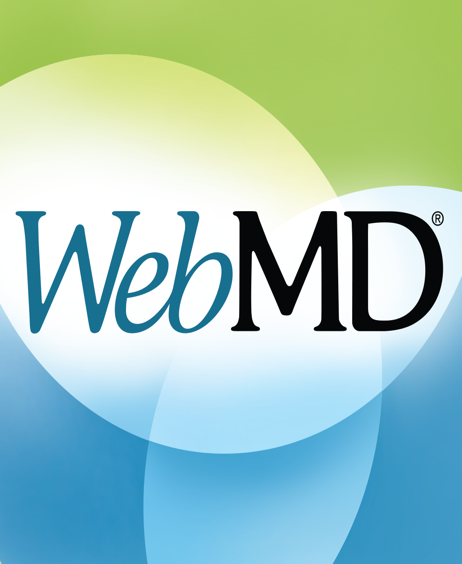
WebMD Strong
Your Healthcare Hub
Biometric-Generated News Native App & Companion Wearable
Our Challenge
WebMD is well-known for being a key resource for health issues and having a vast amount of content available to its users. However, given growing competition in the online health space, the management believes that users want a more personalized experience, which they believe should lead to more frequent (and maybe even daily) engagement, as well as better retention.
My Role
As part of a class project, our team of three worked collaboratively through the design process for one week to design the concept and prepare basic wireframes. My most prominent roles were in ideation, concept creation, wearable prototyping, interviews, user testing, and presentation creation and delivery.
1
Always Consider the Business Needs & Goals
Increase acquisition and retention.
Find a way to encourage daily engagement.
2
Extensive Competitive Review
How does WebMD stack up to the competition?
What challenges will new healthcare start-ups create for WebMD?
3
In-Depth Understanding of the User
Who is the average WebMD user?
Why does he or she come to WebMD? Why does he or she leave?
4
Create an Innovative, Personalized Experience
Would WebMD users be better served by a website redesign or an app?
Would integrating a wearable serve user and business needs?
The healthcare information market is fragmented & diverse
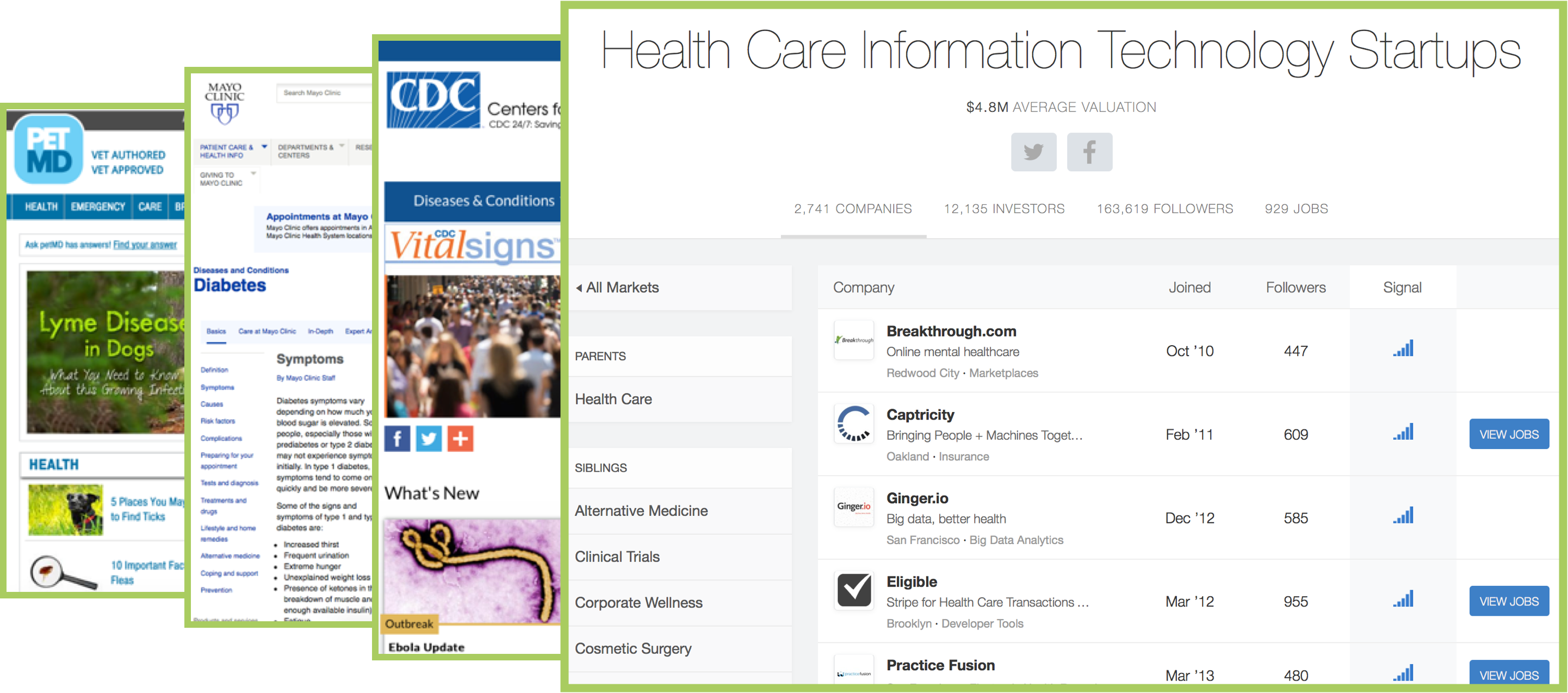
SWOT
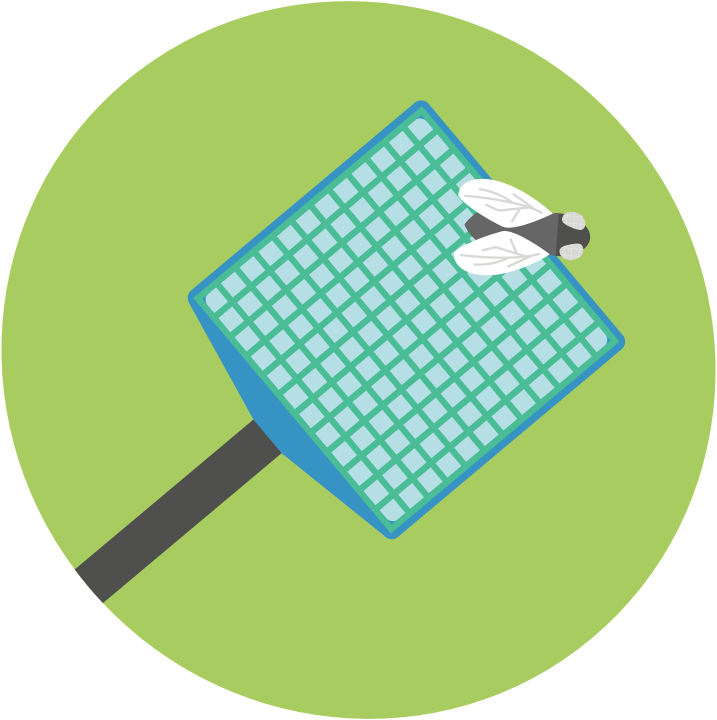
Strengths
- Strong SEO; always at the top of most healthcare searches
- Easy to understand; uses layman's terms
- Allows people to advocate for themselves with their doctors
Weaknesses
- Perceived as having "fluffy " articles; no definitive answers or statistics
- Main revenue source - ads - deters customer retention
- TMI (too much information); users get lost
Opportunities
- API opportunities with health apps and wearable makers
- A WebMD device co-promoted with wearable maker could help make WebMD a daily habit
- Could also market wearables on WebMD site
Threats
- Competitors' sites (CDC, Mayo) are very well-respected sources of healthcare information
- Healthcare start-ups are on the rise: 2,700 on AngelList alone and many more already public
- Fitness wearables continue to expand their data offerings
If you can't beat 'em, join 'em
Instead of seeing competitors as a threat, reach out to them as a partner
No
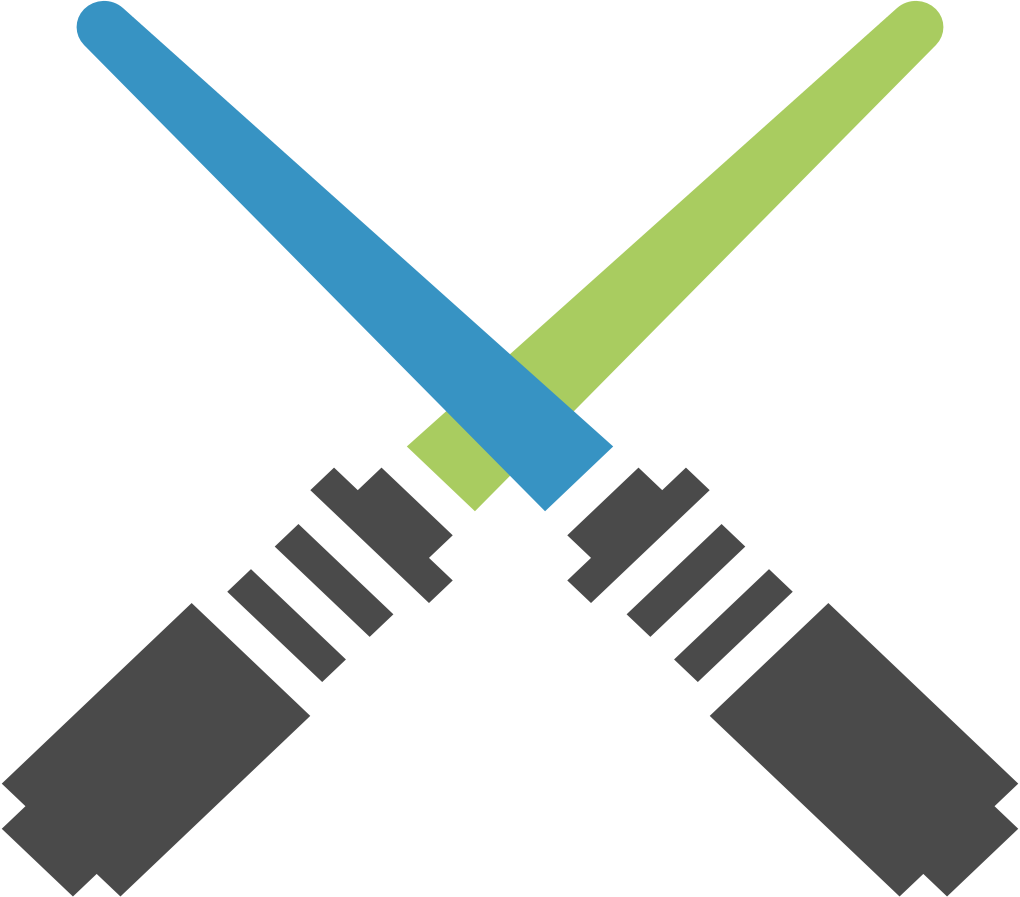

Yes

What WebMD offers its competitors
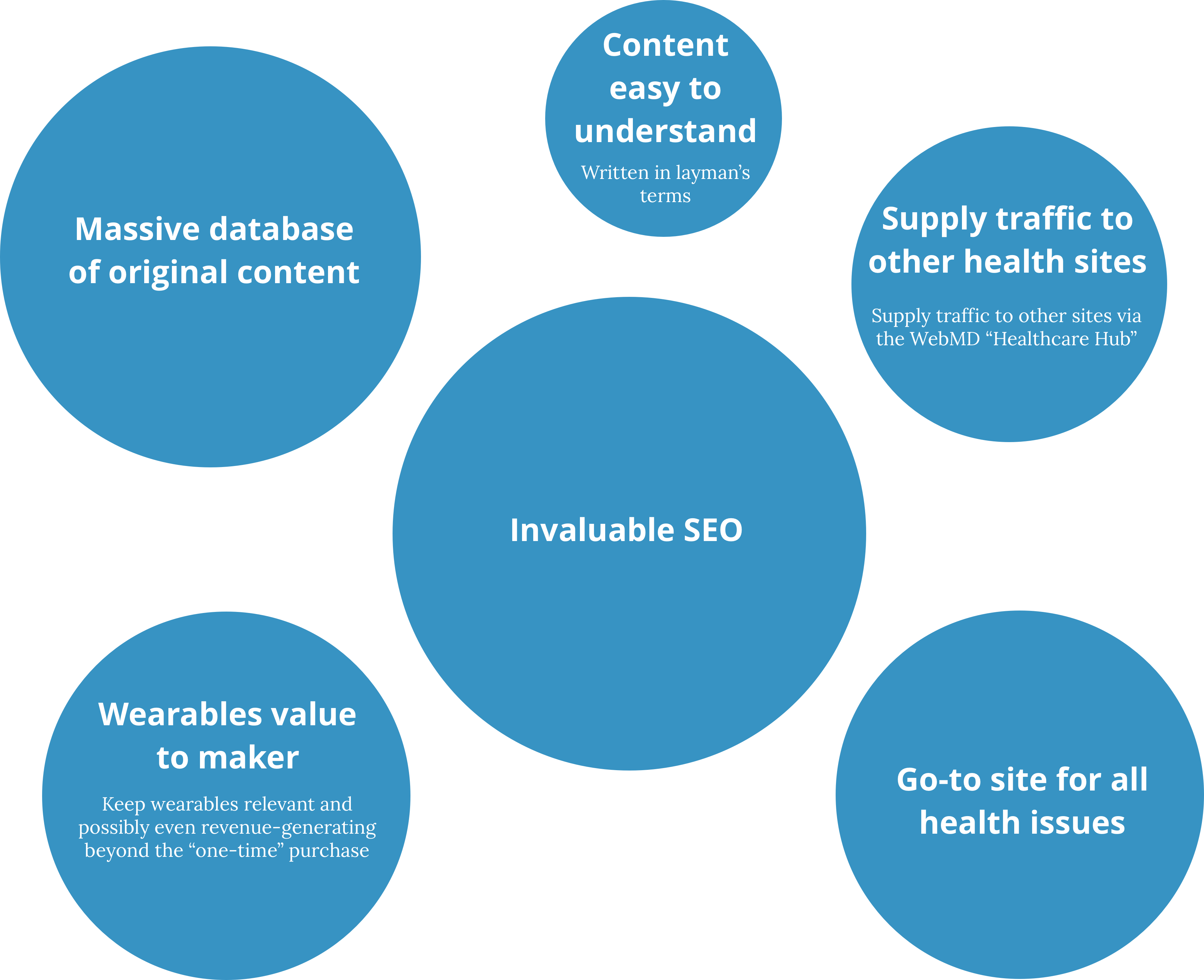
What competitors can offer WebMD
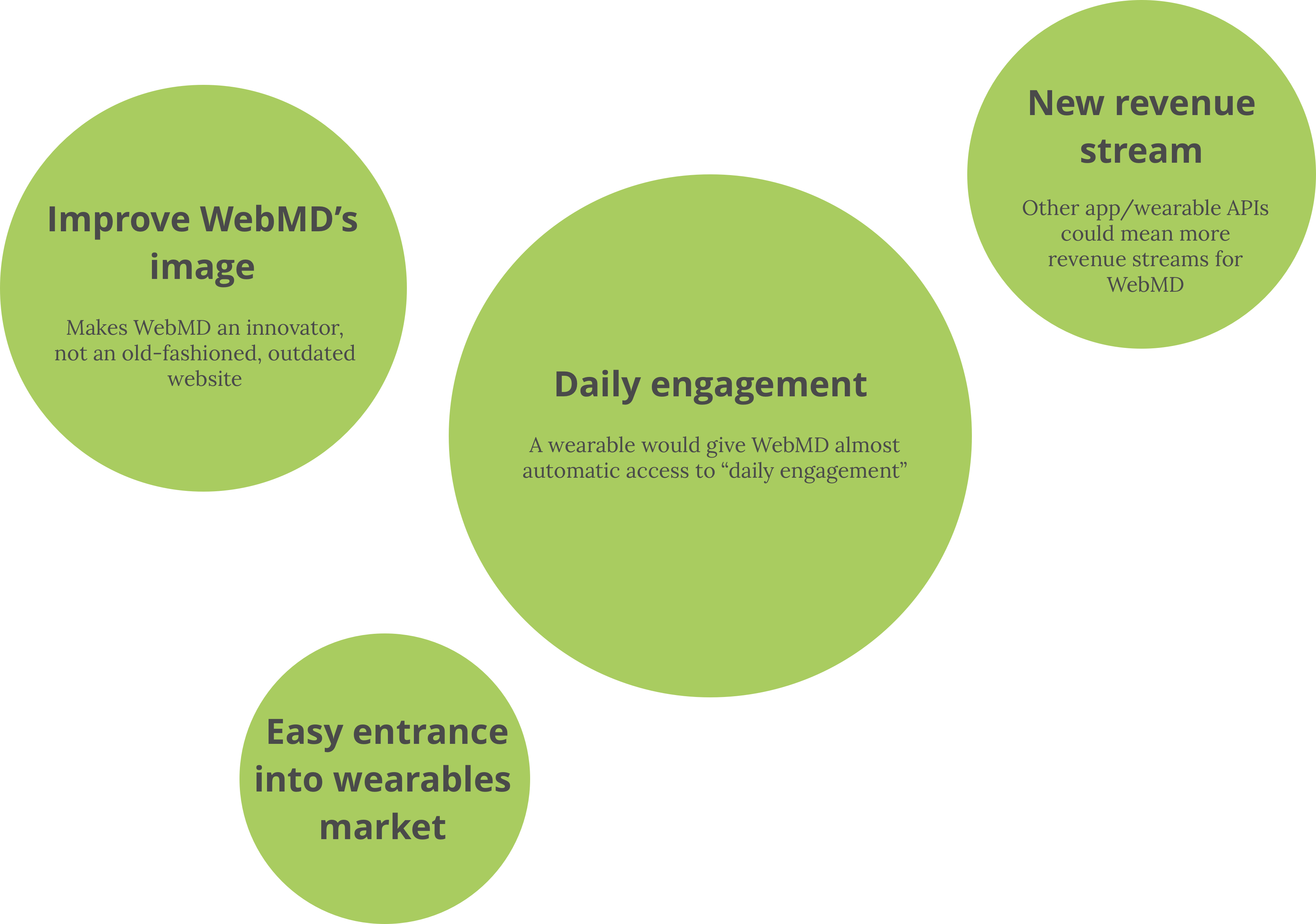
Strategic recommendations
Offer something technologically innovative:
test our concept of a wearable with news generated by biometrics
Focus on your strengths, news & information, not product:
don't build a wearable; co-market and offer APIs
Reduce the clutter:
offer a streamlined app design, limit ads, and provide easy "ad exit"
Make WebMD
a trusted"Healthcare Hub": for health news and information from all sources, not just WebMD
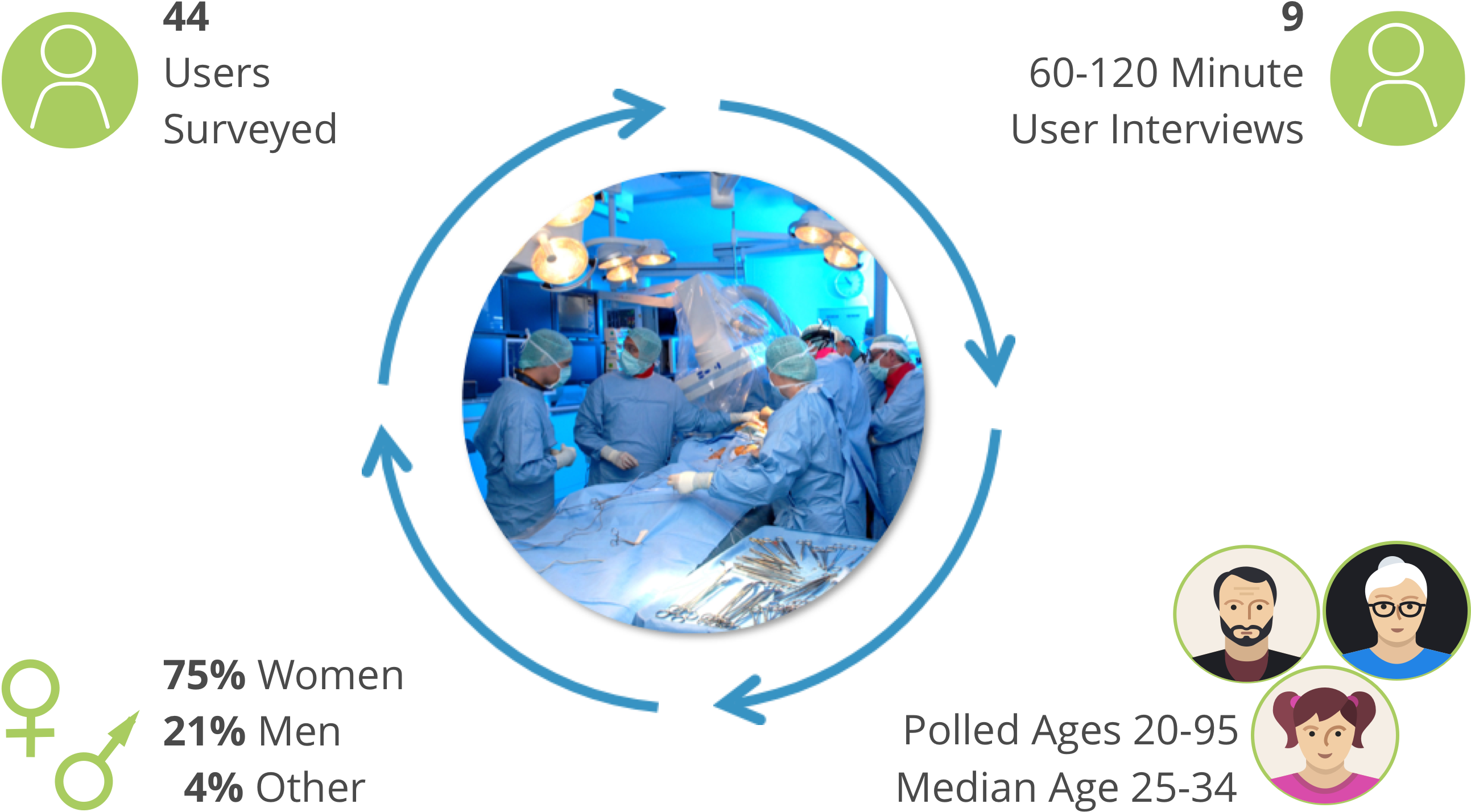
Survey results
WebMD serves a diverse group of clients, all of which have different health information needs, socioeconomic statuses, technological capabilities, and demographics - a difficult audience to please.
While experience with WebMD varied for our survey takers, what our initial research made clear is that WebMD is far from our goal of making visitorship a daily habit.
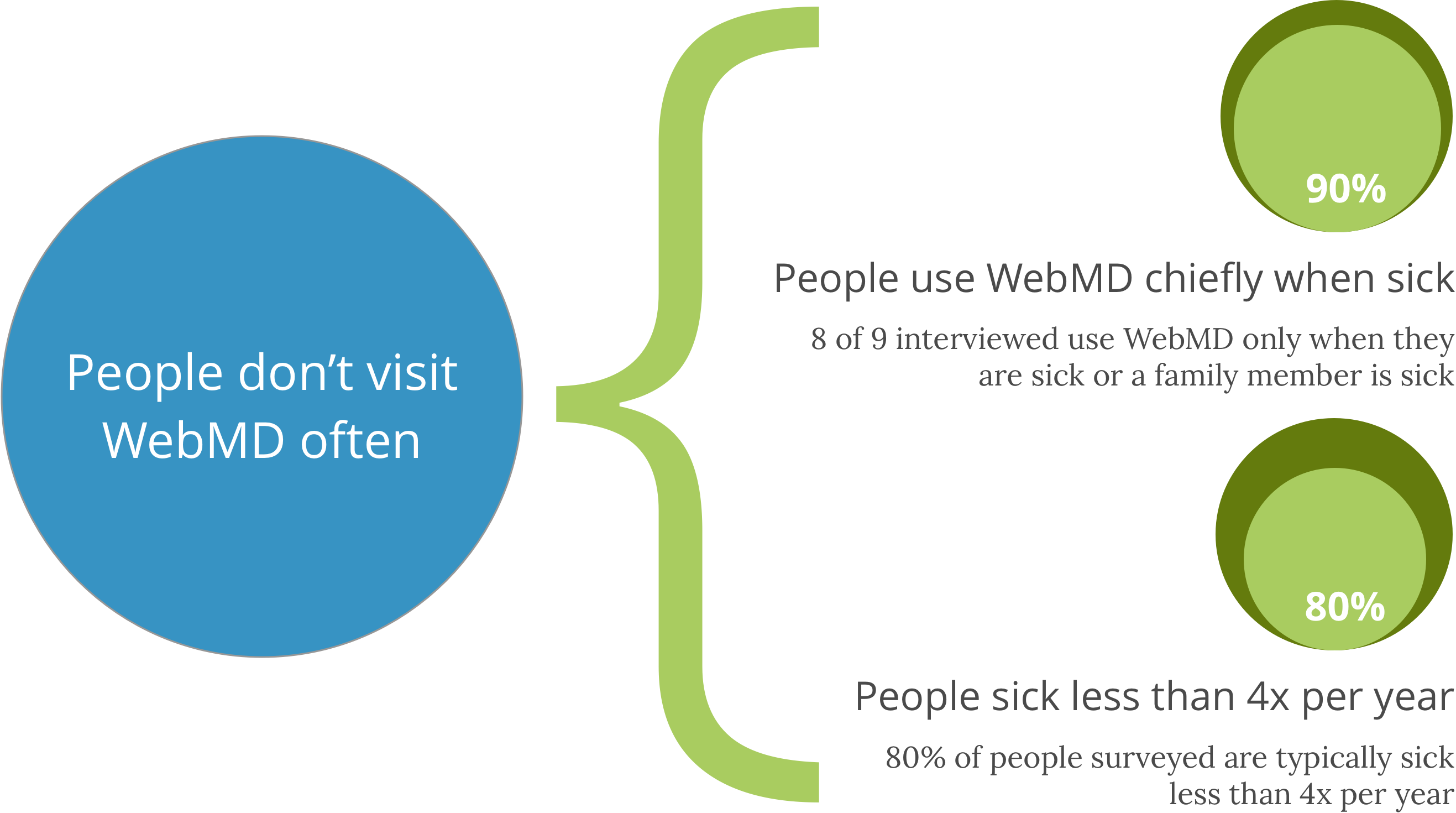
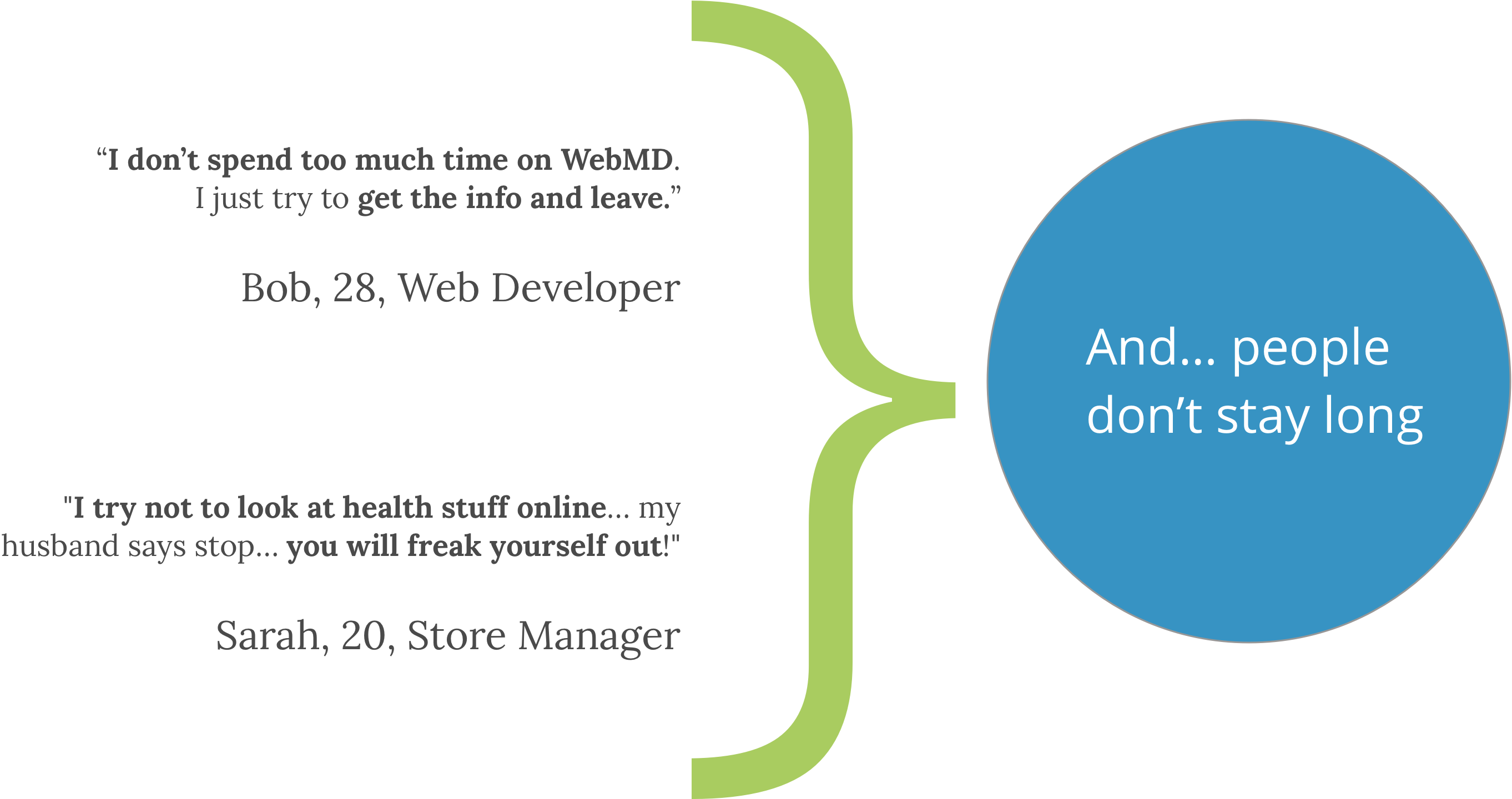
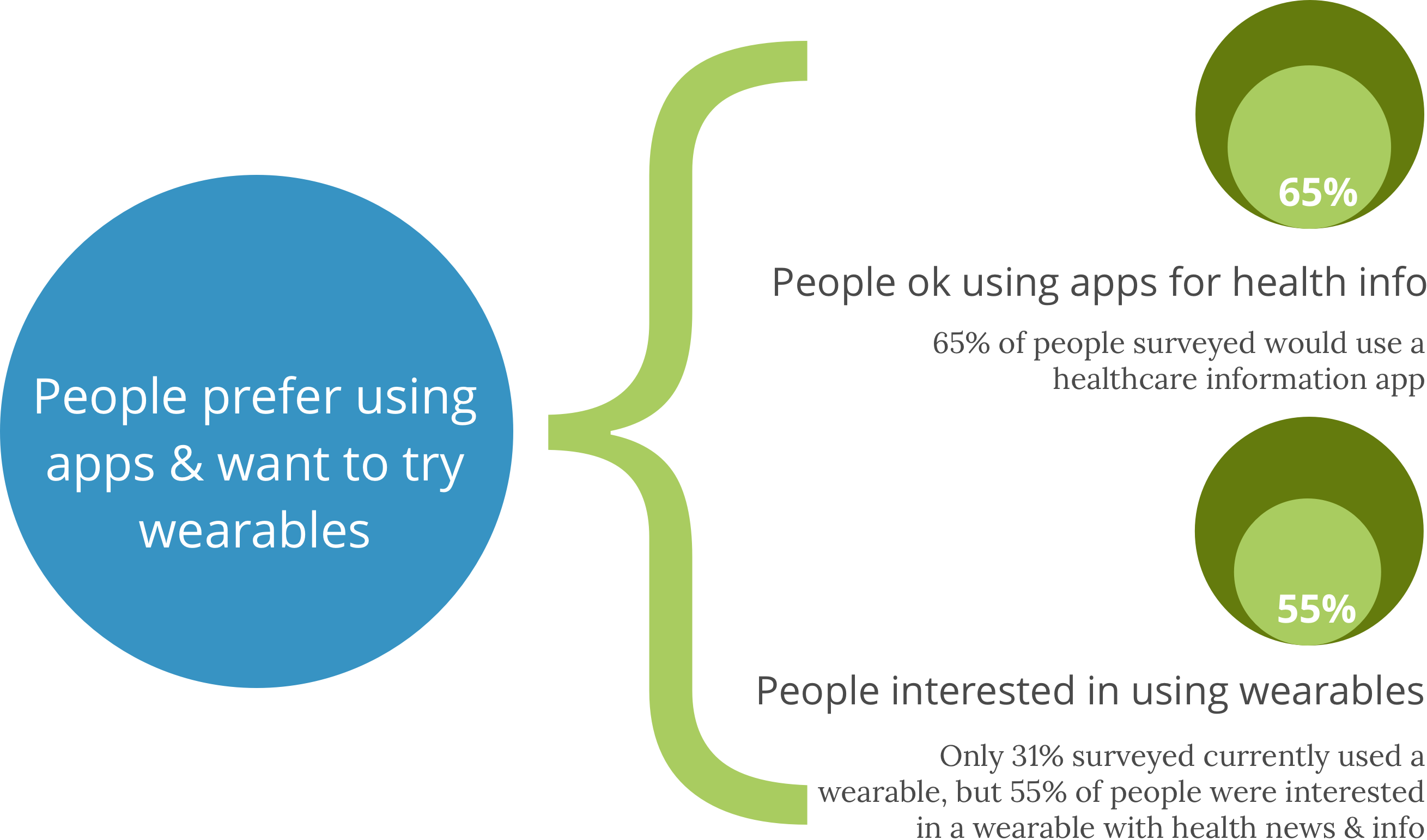
Other interview insights
Wants alerts

Warren, 95
Retired Forester
"I could see using one in the future, especially if it would alert someone automatically if I had a stroke or remind me to take my meds. I wouldn't forget like I do now."
Gets lost

Nancy, 68
Retired Teacher
"WebMD can be so frustrating. I will be clicking on news for high blood pressure and then I am in some ad. I don't know how I got there, and now I am lost in the site."
Changes preferences often
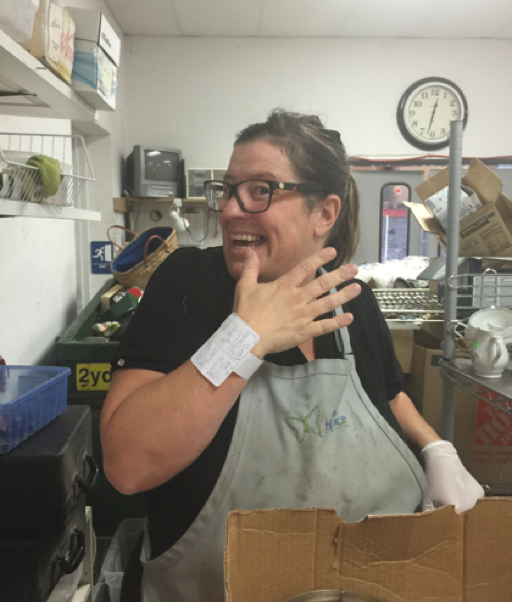
Alyshia, 40
Business Owner
"I need to modify my preferences on the go. I already had my baby. I don't want to get pregnancy articles anymore."
Loves apps with personalized news

Sarah, 20
Store Manager
"A healthcare app with info only important to me. That would be so cool."
Initial research findings
Lots of people go to WebMD (because of SEO), but they go infrequently and don't stay long.
People get lost in the sea of health information - often scary, ad-filled, and not pertinent to them or their families
Validated WebMD's concern that people need a more personalized experience.
People are comfortable using apps for health information and are also very interested in trying wearables.
WebMD needs to implement a really innovative idea to take a ~4x per year visitor to someone that uses WebMD as part of a daily habit.
Our affinity map
This brainstorming tool helped us to outline the users' key pain points: too many ads, alarming content, getting lost, etc.
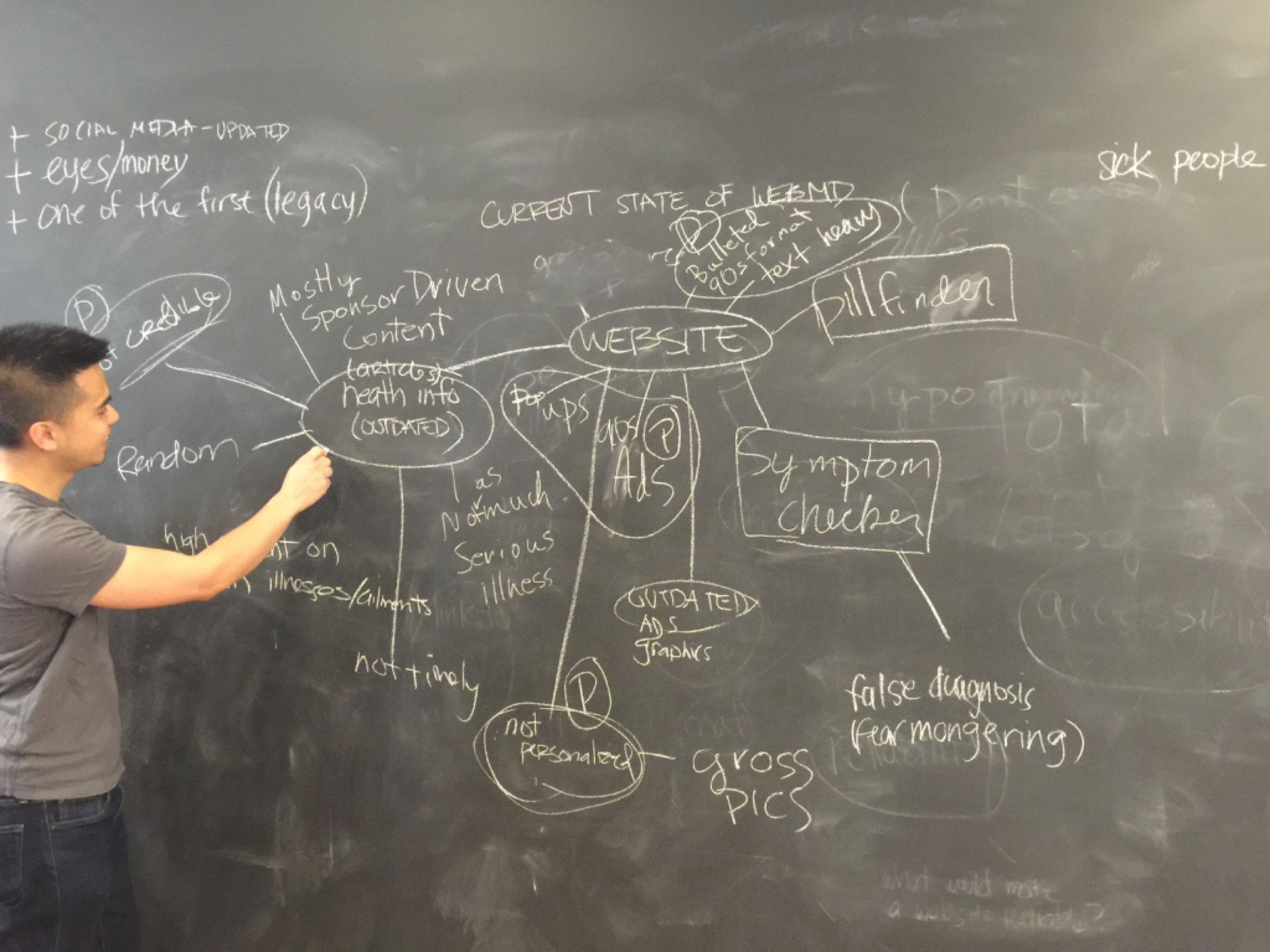
Our empathy map
This allowed us to get into the mindset of those using WebMD: they are often sick, scared, and worried.
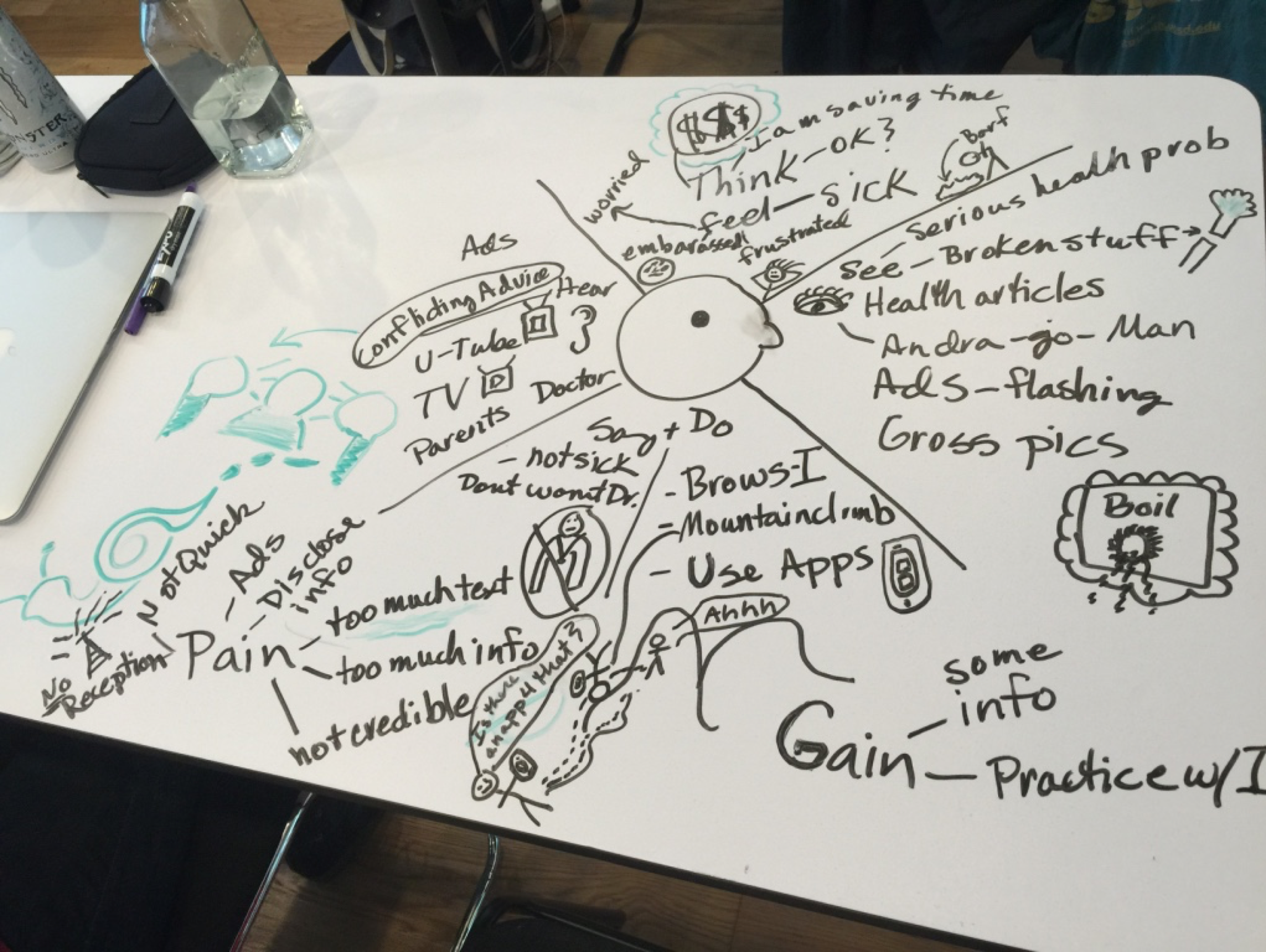
Storyboard
This tool demonstrated interactions with our proposed app and wearable, plus my stick figures are legendary.
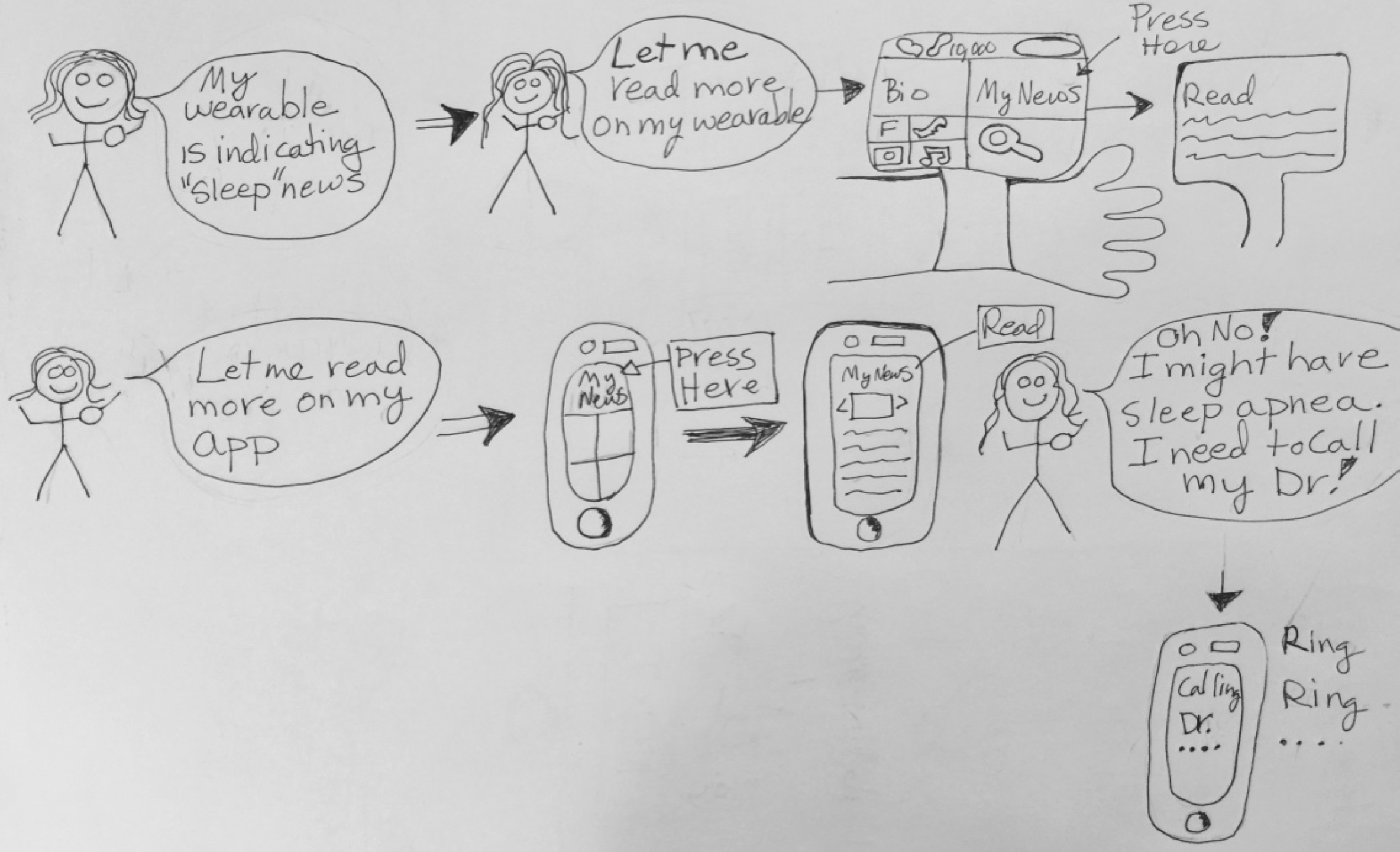
WebMD has a widely varied clientele that can be difficult to please.

|
Location: Long Island, NY Marital Status: Married Family: Daughter, 47; Grandson, 9 Occupation: Retired Scientist |
|
Goals - Learn how to counteract old age - Learn about her husband's heart condition - Manage her blood pressure |
Pain Points - Repeated searches for the same disease - Accidently getting funneled into ads - Symptom checker's alarming suggestions |

|
Location: Austin, TX Marital Status: Single Family: Parents and Grandparents Occupation: Developer |
|
Goals - Quickly read articles on the go - Keep up-to-date on fitness news - Follow articles on diabetes for his grandmother |
Pain Points - Too much time needed to search through vast content - Articles that lack credible sources - Heavy/shock articles on heavy diseases |

|
Location: Danville, CA Marital Status: Married Family: Husband, 45; One Child, 4 Occupation: Teacher |
|
Goals - Keep herself healthy - Keep her family healthy - Change preferences as her child grows |
Pain Points - Inaccurate or ambiguous information - Repeat searches for same illness - Too much "junk" on the page |
The WebMD site is complex, but for the users, the problem is simple:
1
Perceived lack of quality and "trust" in WebMD
Content is fluffy, often scary, and ad-filled
2
Getting lost in a sea of generic healthcare information
It's not easy to find only the articles pertinent to them or their families
Must. Have. Ads. Lots. Of. Ads.
Many of our competitors were reluctant to recommend changes to WebMD's website because of its ads. Ads are the main revenue stream for the site (although not for the company overall). But we believe they just can't see the forest for the trees.
Average annual views now

Potential annual views with app & wearable

1
Users more likely to come to WebMD and to stay longer
When using our approach, reducing the ads on the app, even drastically, won't mean reduced ad visibility. Instead, the odds of users viewing an ad will be much higher, as there will be much more frequent engagement
2
Co-market wearable revenue stream
WebMD could receive a substantial new revenue stream from a co-market wearable
3
Revenue generated from future API agreements
A new potential revenue source from additional API agreements for other fitness devices
4
Improved user loyalty
Less ads and better content will make people less likely to leave the WebMD app, leading to better retention
5
Give WebMD a cutting-edge tech image
The app will help to change WebMD's image from outdated and "scary" to one of innovation, cutting-edge technology, and great user experience
6
More potential revenue from selling app data
Selling user app data is a different potential new revenue stream, which offers buyers a very holistic view of a user's health needs and physical health

Healthcare Hub App
Native app that serves as your hub for trusted news from all available healthcare sources based on your preferences. You only see health news important to you and your family.
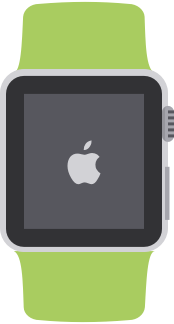
Wearable
Co-marketed original design companion wearable (and API for other wearables) that generates news and alerts from your own biometrics
Healthcare Hub App
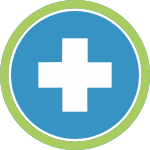
All your healthcare information, all sources, all in one place

Simple, fast on-boarding

Easy-to-use preferences help you to quickly choose topics

Regular medication alerts
Wearable

Generate real-time health and fitness data (steps, HR, BP...)

Real-time news & info relevant to your physical condition

Read urgent news, texts, or social media right on your wrist

Real-time alerts due to changes in your physical condition
1
Use of on-boarding
Outcomes: complete the on-boarding or skip ahead before finished
2
Change your preferences on the go
Outcomes: change preferences at the newsfeed, article, or profile level
3
Successfully find sleep apnea article on app
Outcomes: find article through search, newsfeed, scroll, etc.
4
Read an article
Outcomes: click to read an article, scroll to read the article, select a new article, provide feedback on the article
5
Identifying biometric-generated articles
Outcomes: find the biometric-generated articles in newsfeed or article view
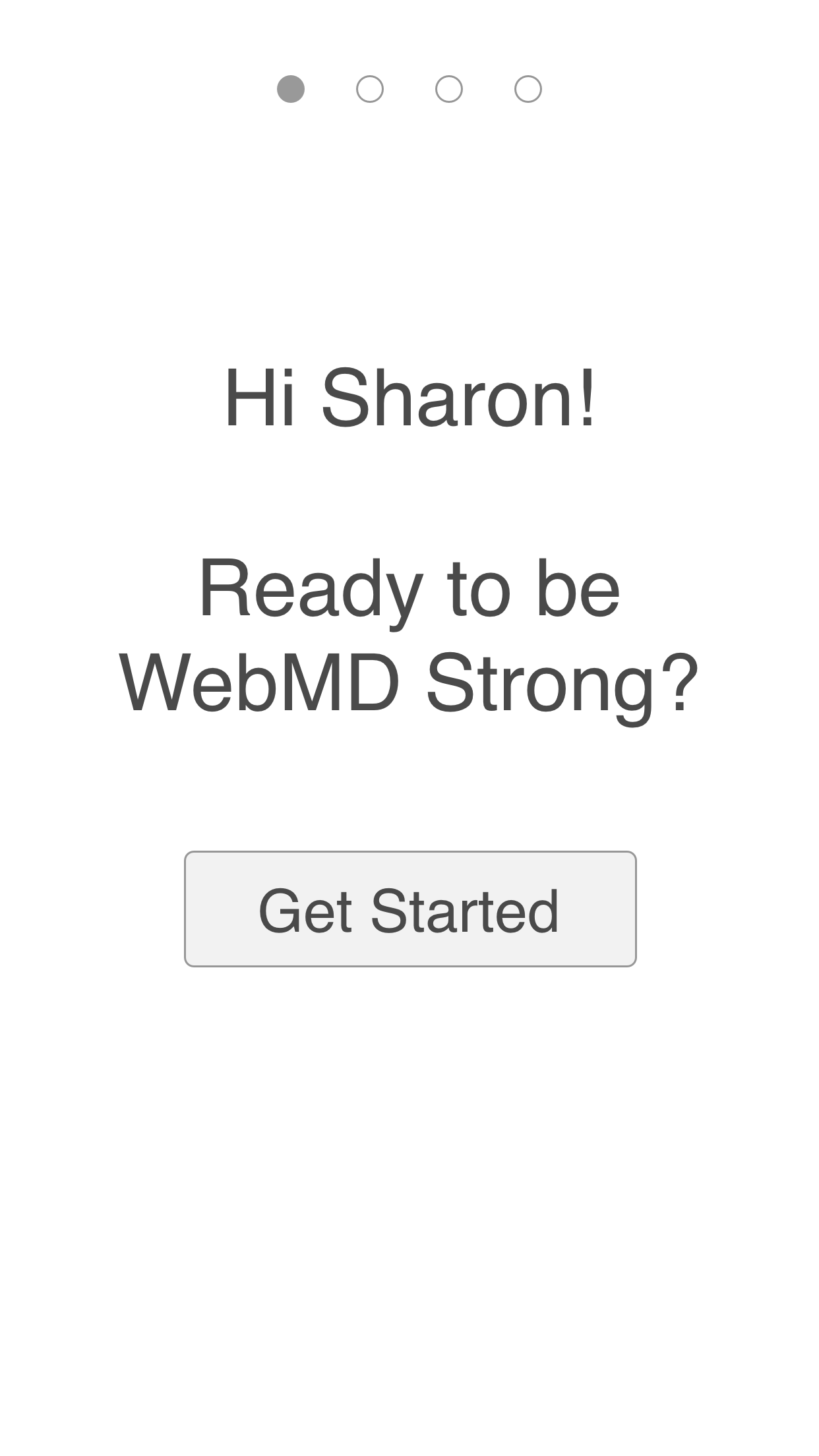
Intro to quick on-boarding
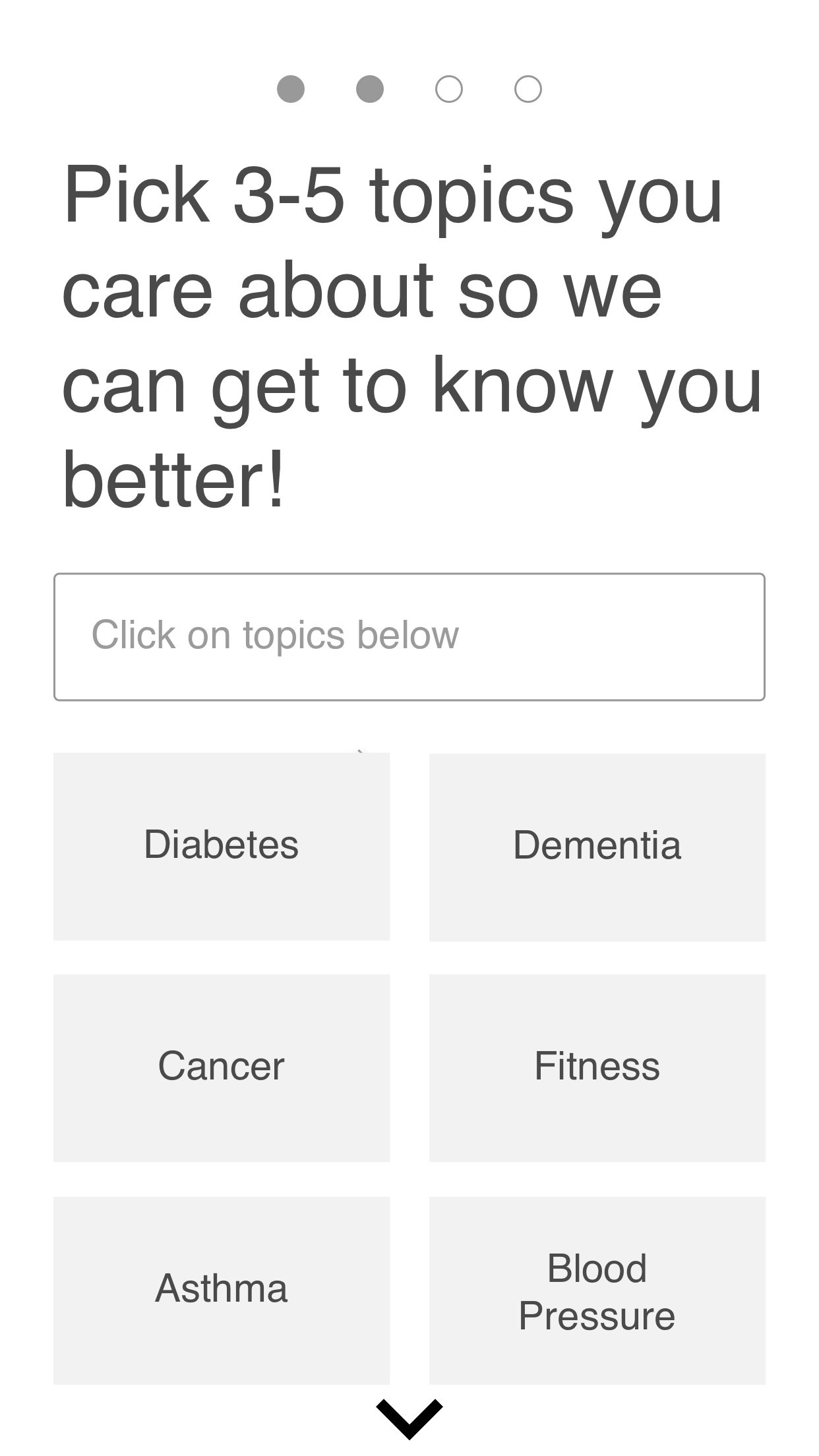
Choose your news preferences
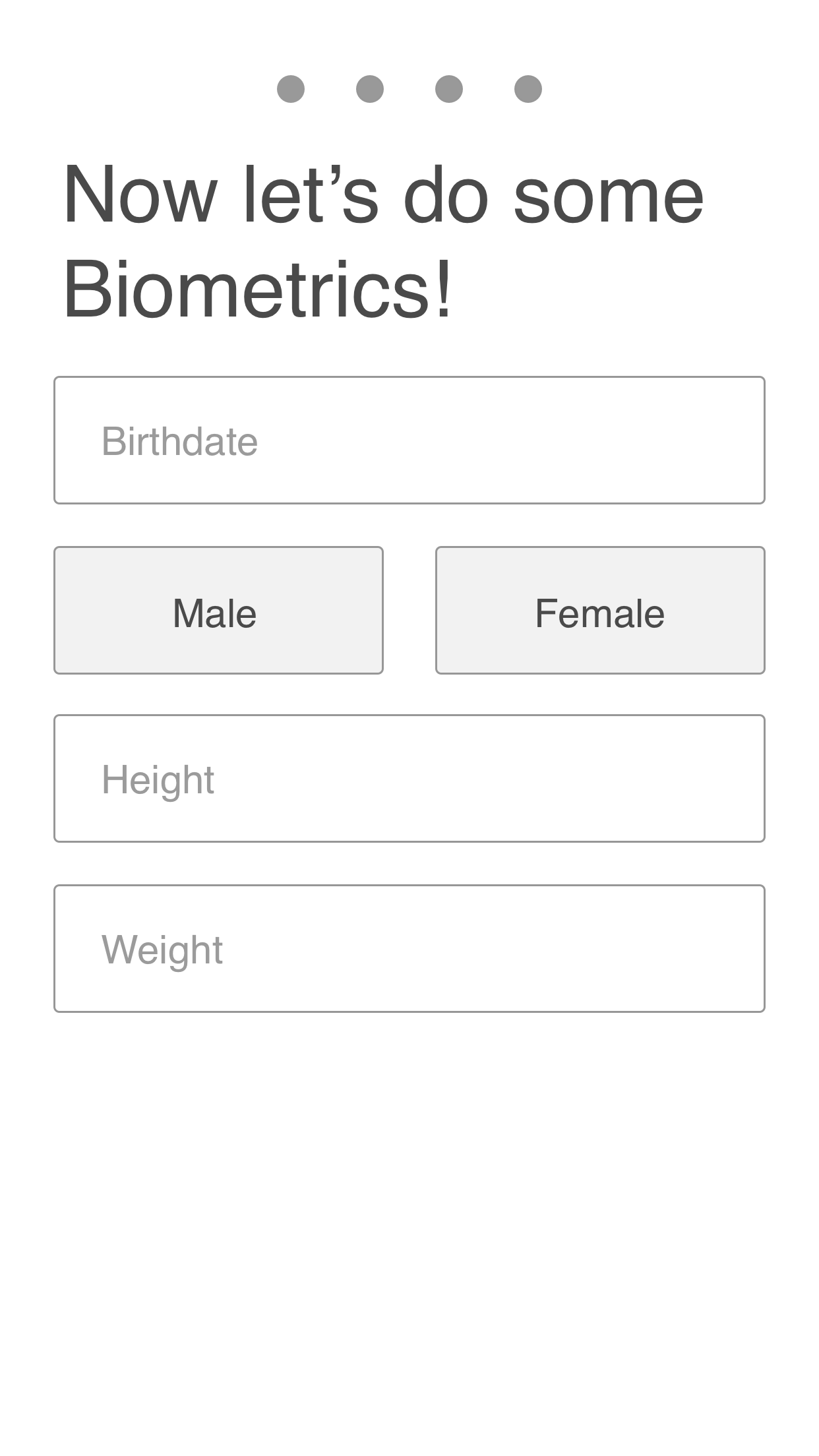
Easy wearable set up
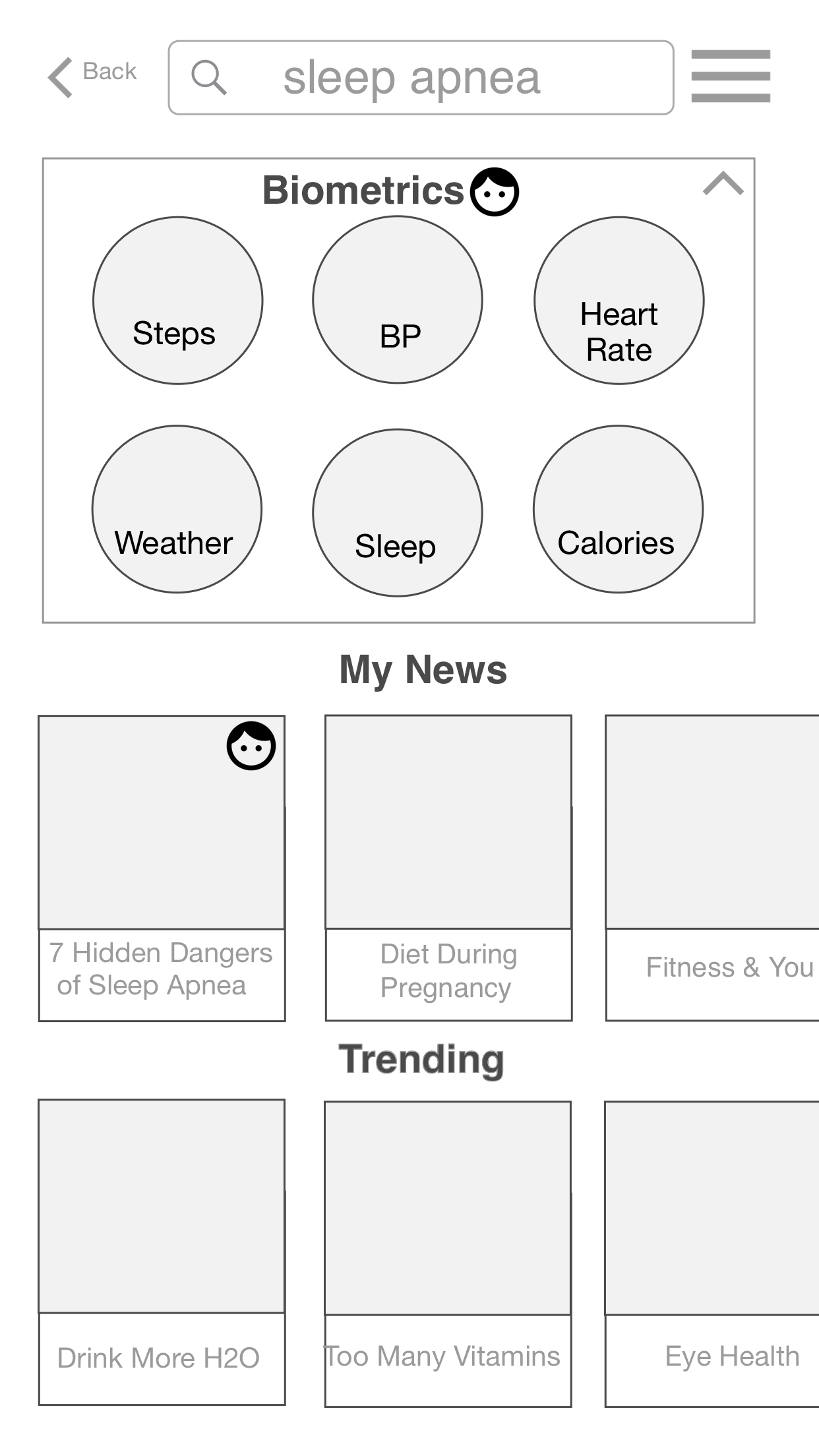
App landing page
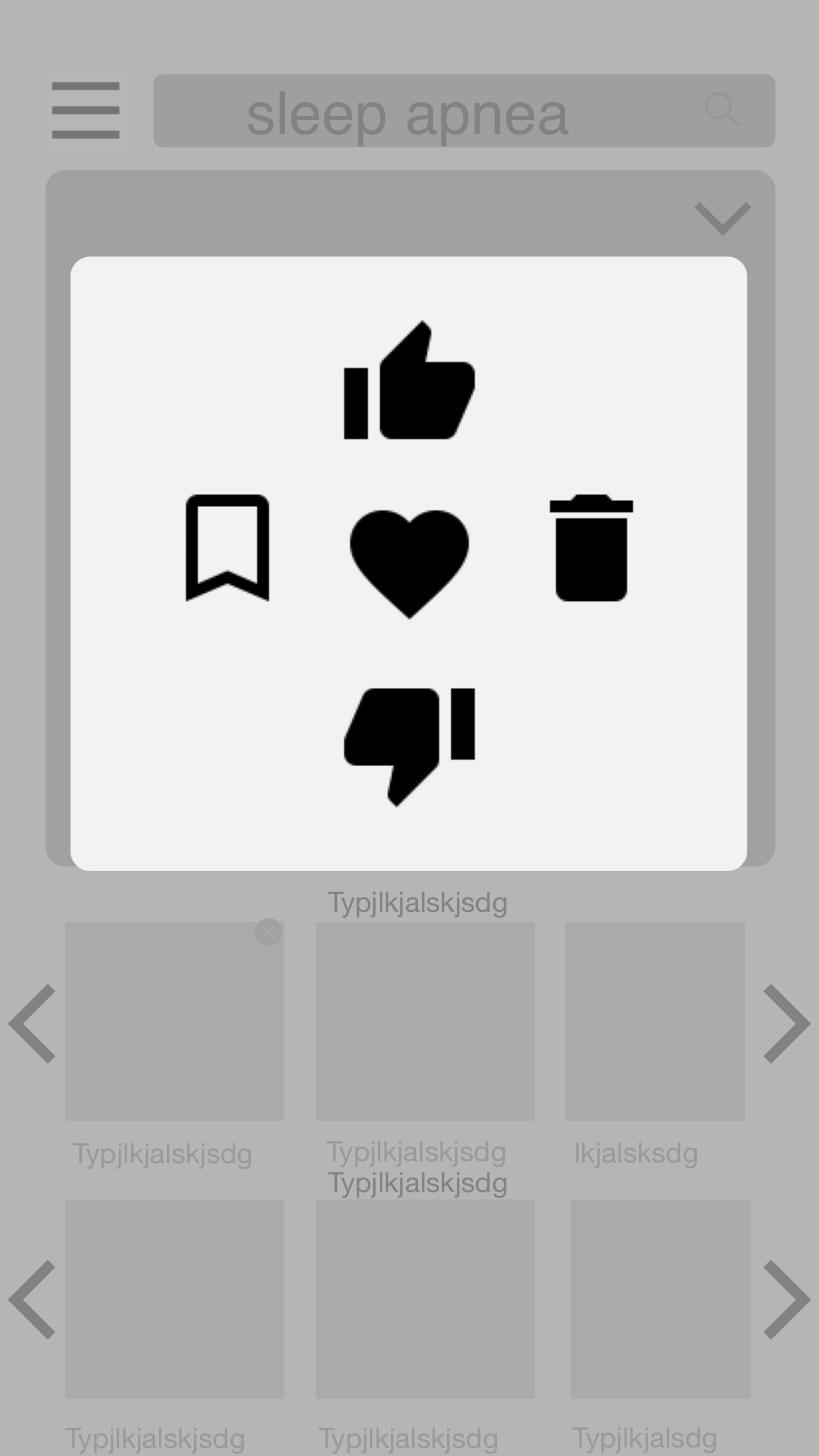
Modify preferences on-the-go
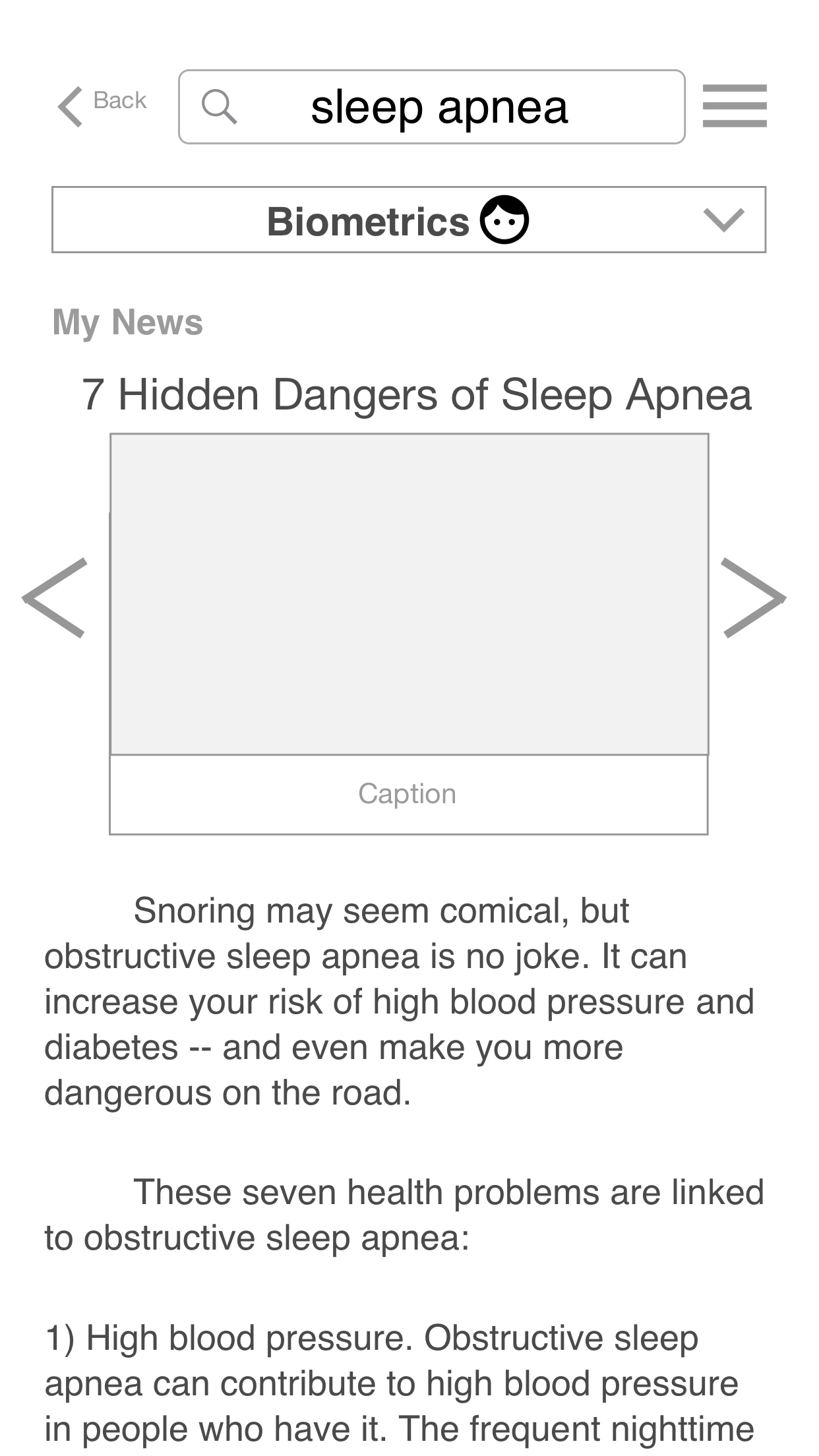
Article view
Usability testing: user feedback
On-Boarding
"I always skip these things, but this was so simple and fast I forgot to skip it."
Landing Page
"I love this! You have my steps and all my personal news at the top, but also trending articles to keep me up on the latest health news.
On-The-Go Preferences
"I don't understand the difference between 'heart' and 'bookmark.' And what do those thumbs up mean? Is this Facebook or a health site?"
Article Scroll
"Oh, those arrows on the picture are to scroll articles? I would never get that. I thought it was just for pictures."
Read Article
"This is super easy to read. Just scroll down. But I don't like that I have to scroll through the whole article before I can use these [article feedback] icons."
Biometrics Icon
"This icon is too happy. I am coming here because I am sick or have a health concern. I don't want to have his happy face staring back at me."
Our final interactive wireframes encompass a number of features, including a quick and easy on-boarding, clear-simple-personalized newsfeed, fitness/biometric data and health news all on one screen, and an easy search.
Initial tested draft vs. medium-fidelity
Landing Page Tested
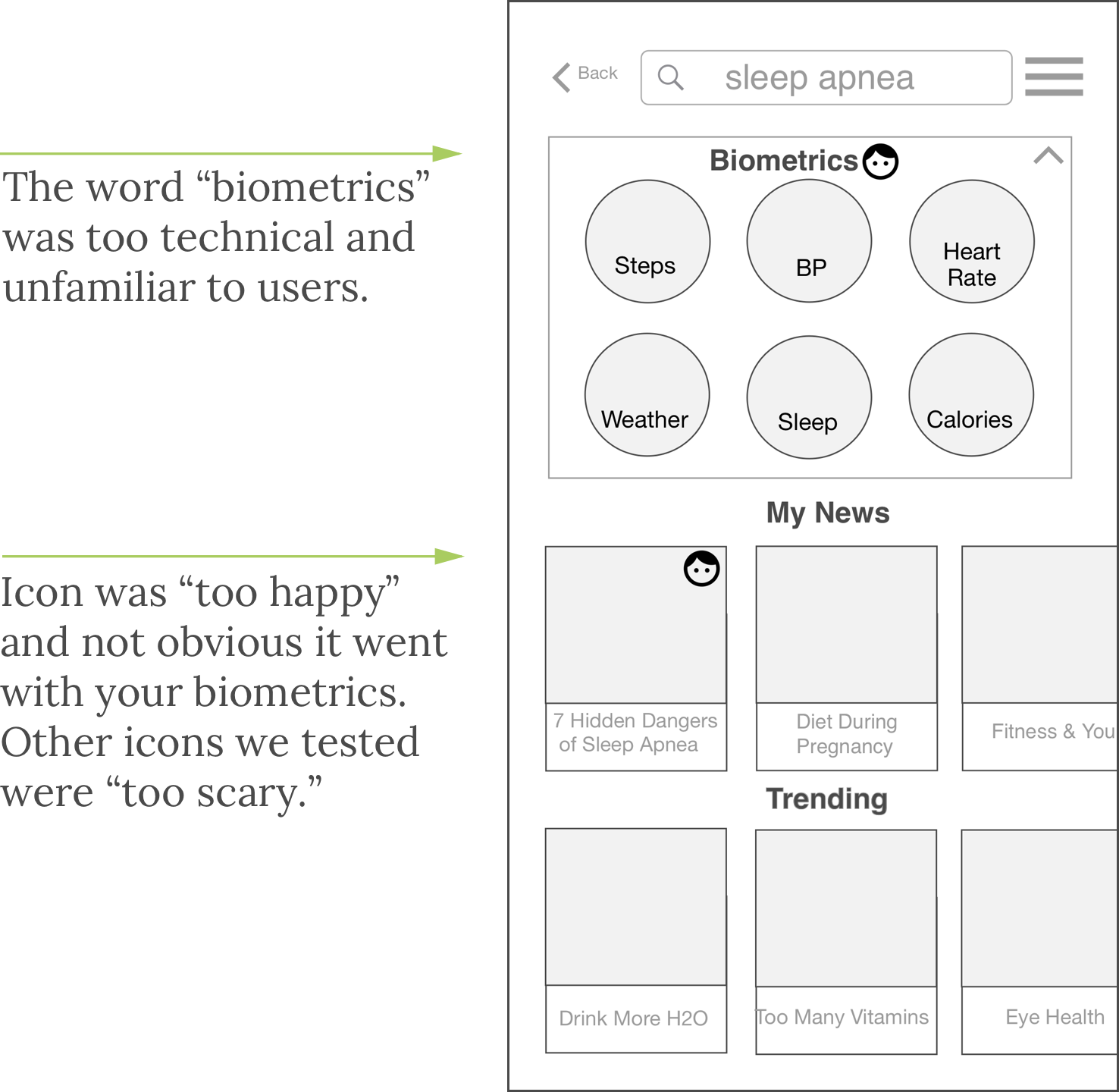
Landing Page, New Draft
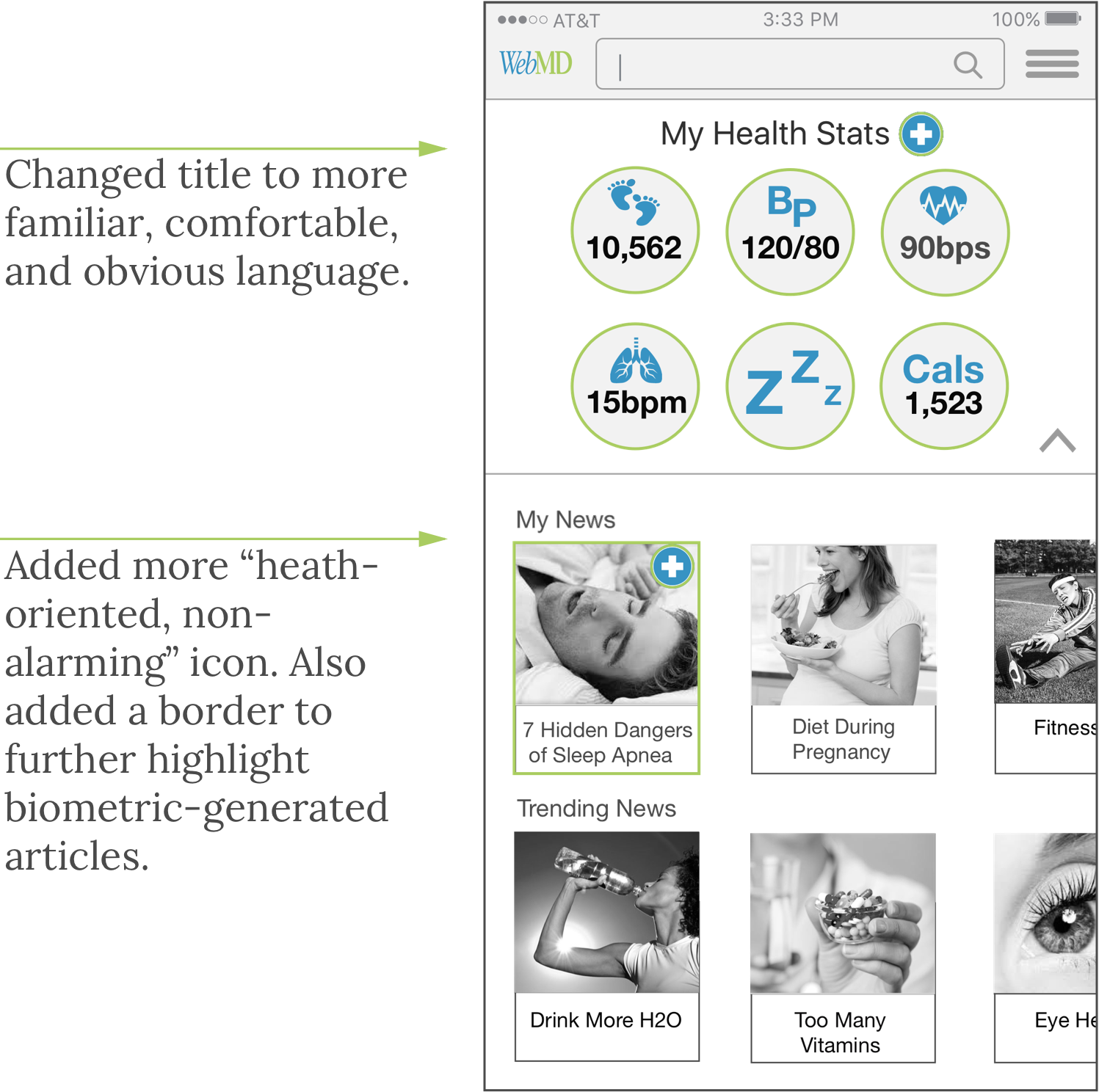
Article View Tested
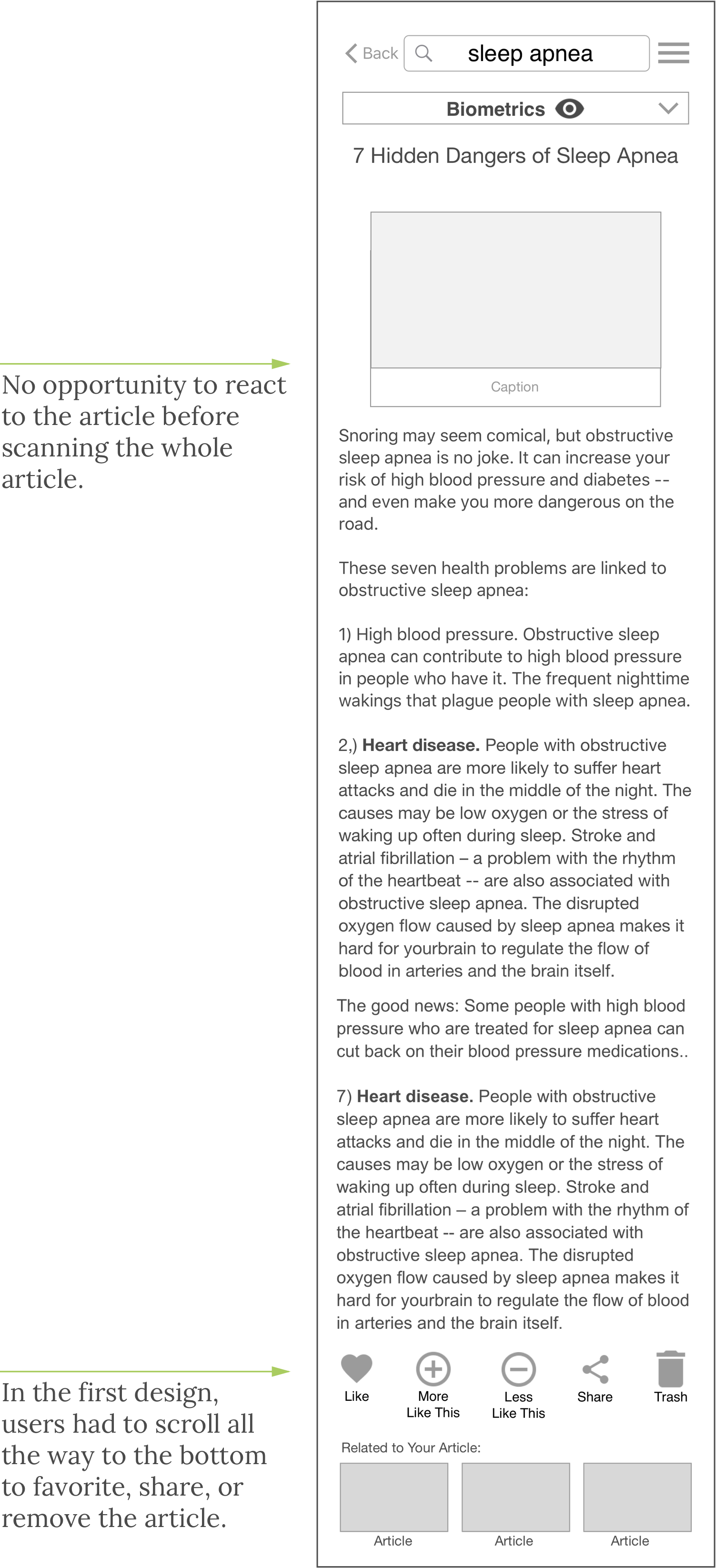
Article View, New Draft
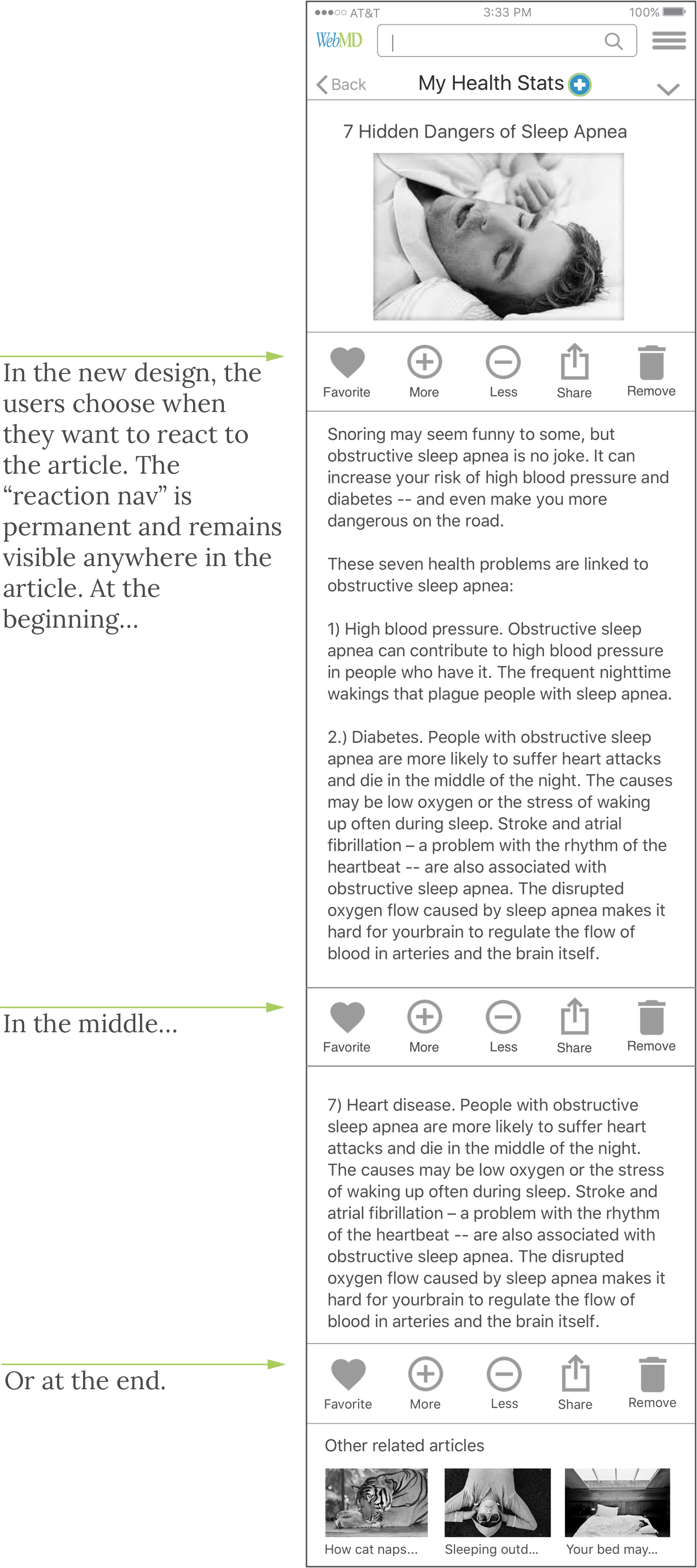
Tested Feedback
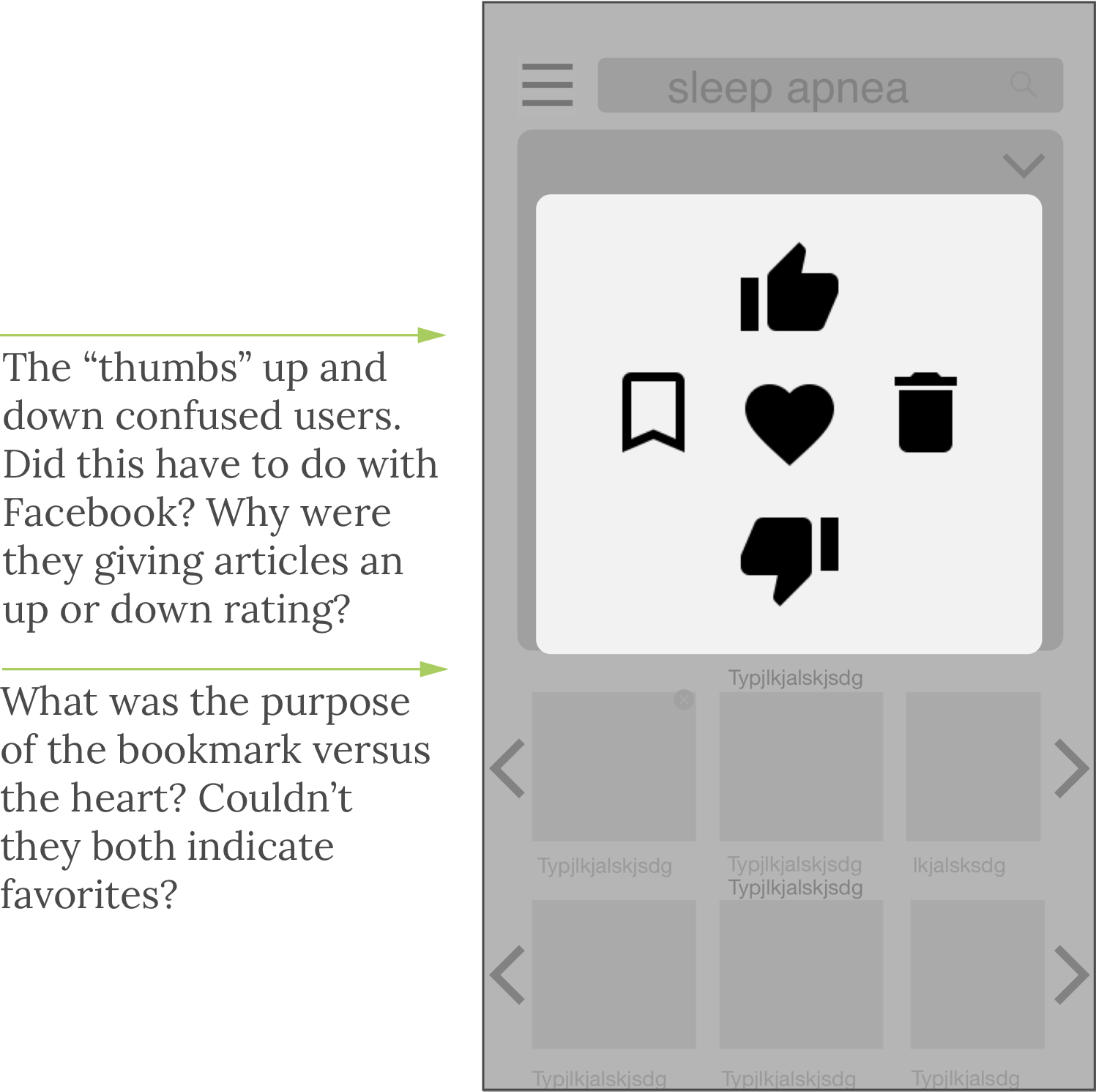
Feedback, New Draft
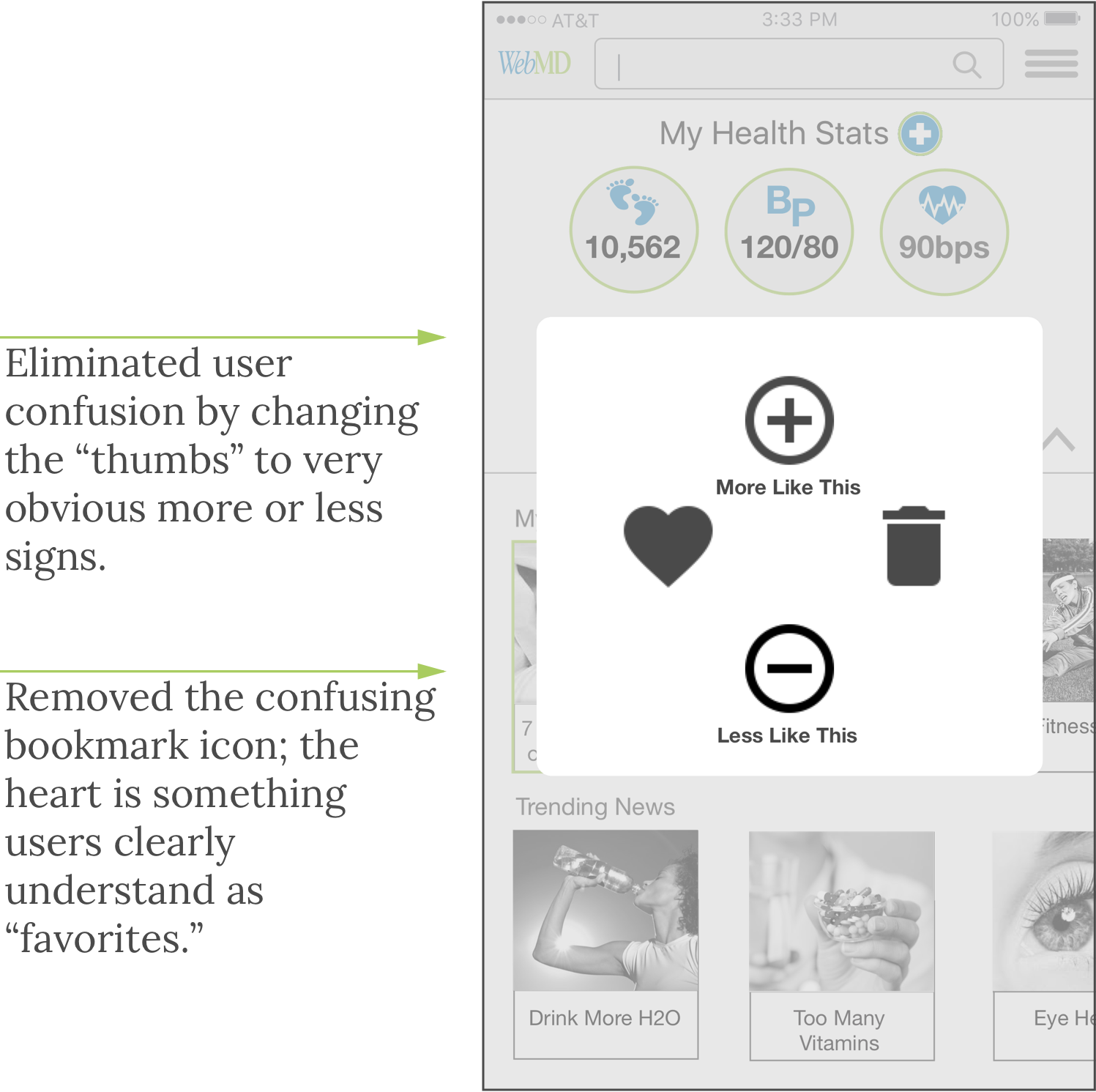
- 1-2 rounds of user testing to further refine medium-fidelity design
- A/B testing to choose the best landing page
- Finalize and polish design into a full-color mock-up
- Develop co-marketing agreements for novel wearable with an established maker (e.g. Garmin)
- Finalize the design of co-marketed wearable
- Continue to add other fitness wearables partners via APIs
- Explore partnerships with other established, trusted sources of healthcare information
- Continue to expand into new revenue streams: reciprocal links, ads on partner sites, or other joint ventures


